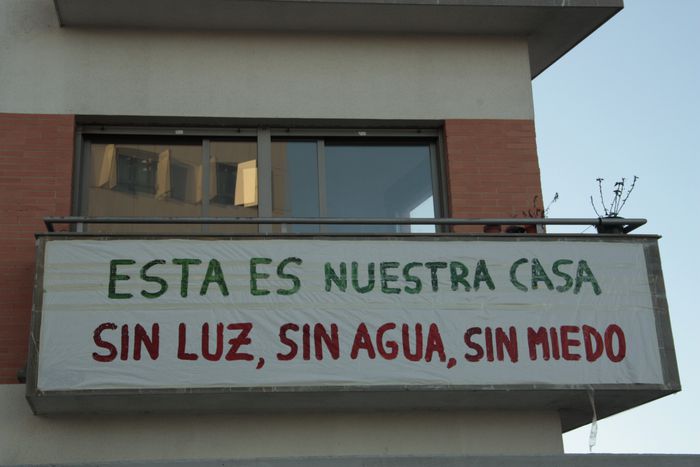
The Corrala Utopias Bringing Seville Back to Life
Published on
Ravaged by the economic crisis which spread unemployment, poverty and homelessness, the people of Seville are fighting back with ingenuity and joie de vivre. The Corrala movement is taking back empty properties, not only giving people a place to live, but also a community to value...
“Some time ago a French photographer came to shoot a photo report on life in our Corrala. He took us all, seated us one family after another on a couch and shot pictures. In my family’s photo my daughter is sitting on the sofa, my wife is standing to her right and I am standing on her left hand side.” Although the residents of Corrala Utopia got used to photos and media attention, they became tired of the media sensationalism. “Upon seeing the result of this session I discovered that the photographer had photoshopped our faces to make us look sadder. My face was edited and I looked like I was crying. I also looked ten years older,” sighs Alvaro. Sitting on the pavement outside the Corrala, in the working-class, northwest part of the city, we meet Alvaro, a swarthy, robust-looking messenger sent by the others to answer our questions. There is no point in seeing anyone else as “everyone would tell you the same story,” claims Alvaro; and we cannot go inside the building so “the police won’t know what we have been doing inside for the last few days”.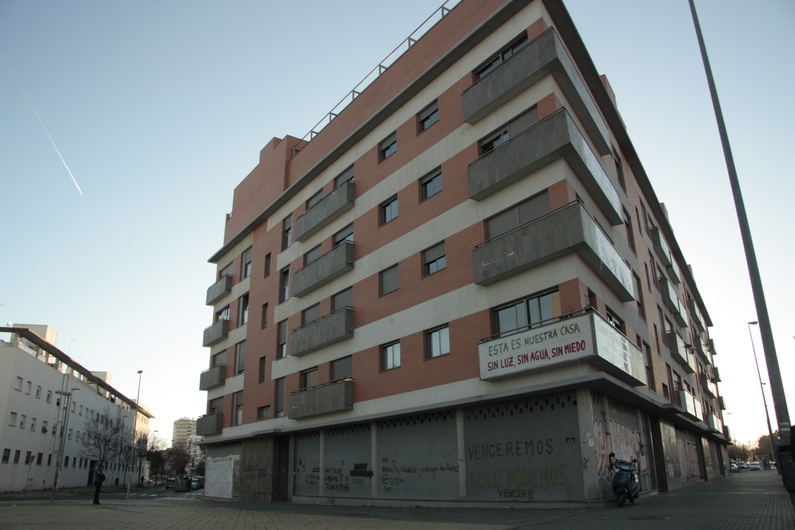
MEET THE RESIDENTS
Established in May 2012, Corrala Utopia was the first vacant apartment block occupied by the victims of the ongoing economic crisis. It is inhabited by various people from former hairdressers to cleaners and bricklayers who found themselves jobless overnight, who were kicked out of their homes and who, by and large, still have mortgages to pay off. Although many other Corralas have emerged throughout Andalucia since then, Corrala Utopia is one of the few which has survived. However, its fate is highly uncertain nowadays. On 15 February, the Court of Justice ordered an immediate eviction of Utopia’s residents, followed by concessions that allowed the families to find a “passive solution” to the problem. Consequently, the community of Utopia will most likely be dissolved on 5 March. Its residents will need to find new homes.
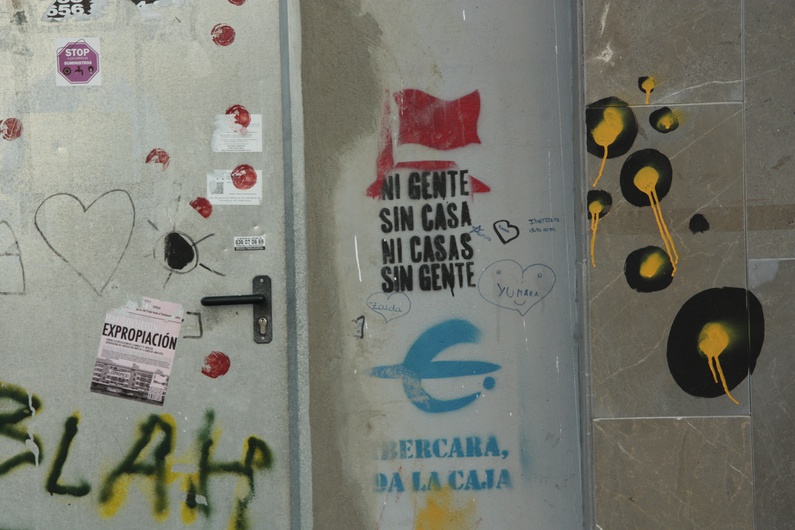 This is a paradoxically hard task. Despite Seville having an estimated 130,000 empty housing units, none of them have been offered to the families. “We want to pay a social rent, according to our individual incomes, but the Government does not want to hear about it,” explains Alvaro, “Moreover, they have been doing all they could to make life harder for us.” Just a few weeks after they had moved in, the city cut off the water and energy supply. “They spent 40,000 euros on that operation,” recalls Alvaro with a certain resignation, “We have been living here without water and energy since almost the very start.”The Corrala residents take water from the public fountain across the street and use petrol generators to produce power. “We also asked the Government to allot us huertos so that we could grow our own fruit and vegetables. Only one family has been granted a plot of land.”
This is a paradoxically hard task. Despite Seville having an estimated 130,000 empty housing units, none of them have been offered to the families. “We want to pay a social rent, according to our individual incomes, but the Government does not want to hear about it,” explains Alvaro, “Moreover, they have been doing all they could to make life harder for us.” Just a few weeks after they had moved in, the city cut off the water and energy supply. “They spent 40,000 euros on that operation,” recalls Alvaro with a certain resignation, “We have been living here without water and energy since almost the very start.”The Corrala residents take water from the public fountain across the street and use petrol generators to produce power. “We also asked the Government to allot us huertos so that we could grow our own fruit and vegetables. Only one family has been granted a plot of land.”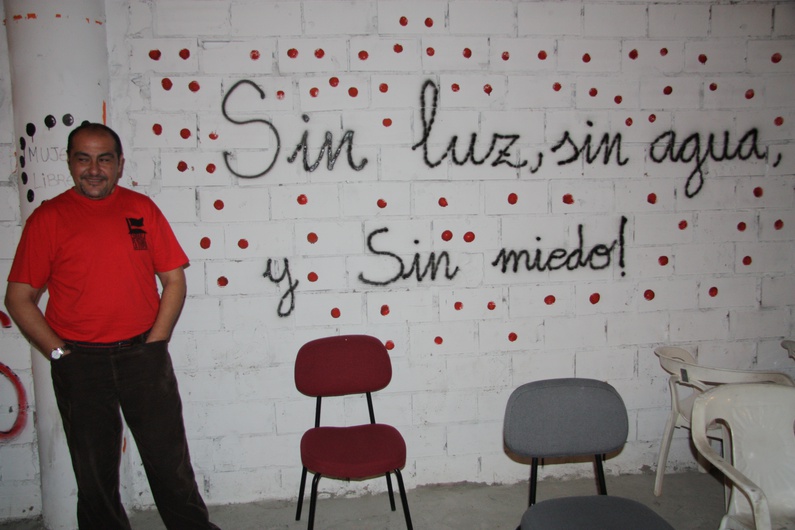
It's all about the people
“Before coming here I worked in a nautical club. I earned 2,500 euros per month, I bought a house; I was well off. Today I don’t have a house, neither TV nor radio, but I am happier. Money can’t buy happiness,” explains Alvaro, “Now I have more time with my family, we spend the evenings talking with others and playing with our kids. We are like one big family.” In their free time, the residents of the Corrala, supported by volunteers, organize activities for children, learn to dance flamenco and organize events in support of their movement. “We organized Corrala Rock last year, a series of concerts in support of our Corrala; we took flamenco classes and used it for an escrache [a type of peaceful demonstration popular in Spain, Argentina, Uruguay, Paraguay, Ed.] inside the Ibercaja bank, the current owner of the Corrala. We even asked the Government to help us financially in the organization of a solidarity centre where we could advise people from our neighbourhood, and then open a social canteen. We never got an answer.”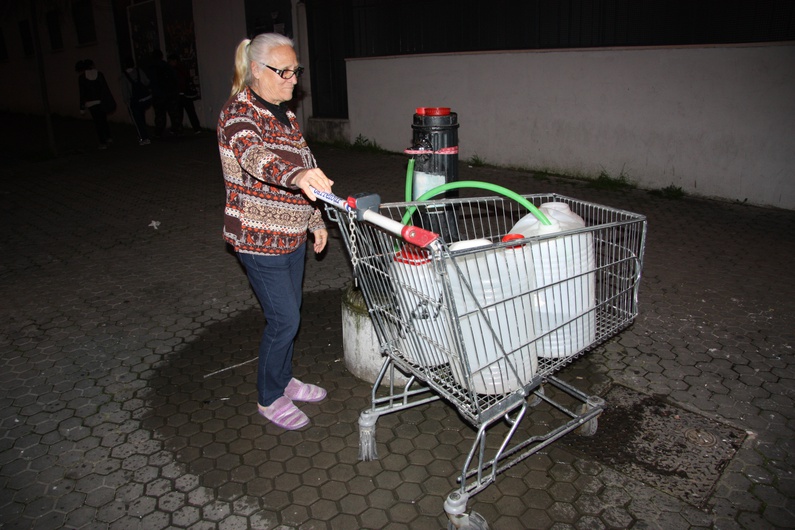
MAKE some NOISE!
“Power is people united”, declares Alvaro and his belief is nowadays shared among people all across the country. We meet the members of the Platforma de Afectados por la Hipoteca de Sevilla (platform for those affected by mortgages in Sevilla, PAH) during a demonstration in the building of another local bank, Caixabank. It’s noisy, the demonstrators can be heard a few streets away. Trumpets and whistles are necessary arms to show support for the right to “decent housing” and draw attention to a need for “a real solution to the mortgage problem” - there are four mortgage cases that are currently being discussed by the bank’s management. These people have been camping in shift for eleven days to demonstrate their unwavering determination.
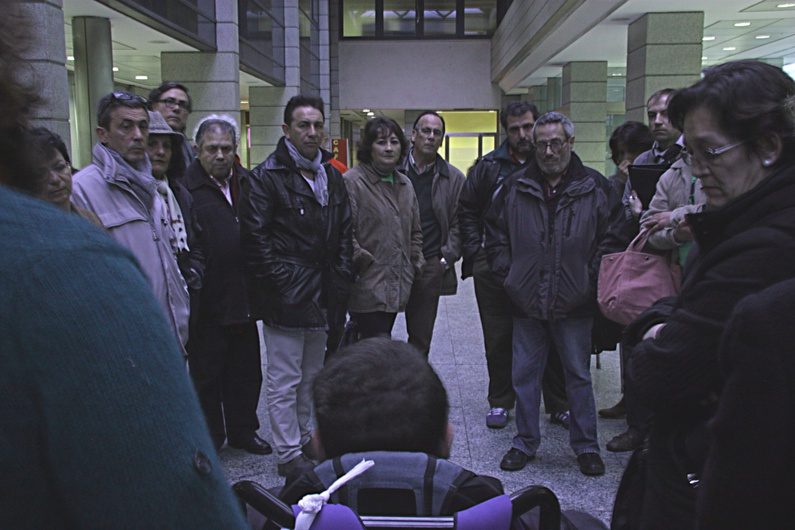 “The PAH is directly linked with the Indignados movement, or the 15M (the Occupy movement born 15 May 2011). Back then people with the same problems joined forces, started to organize weekly assemblies during which people in trouble with mortgage and eviction would come to discuss their problems, receiving counsel and support. In the Sevilla branch of PAH, we meet twice a week and gather about 280 people with non-solved mortgage issues.” Isabel is a social worker who devotes her free time to coordinating the PAH actions. “Our biggest success is that we have managed to avoid evictions,” Isabel explains with a smile, “Besides, we are not fighting for individual cases. We work together in solving a common cause. Here people lose their sense of guilt, they know they are not alone anymore. Thanks to PAH, people realize that they are fellow citizens, not just consumers,” she proudly points out. In fact, this seems to be the raison d’être of all the grassroot movements of civic support in Sevilla, and probably in Spain as a whole. As Alvaro puts it: “We are looking for a social victory, not a political one.”
“The PAH is directly linked with the Indignados movement, or the 15M (the Occupy movement born 15 May 2011). Back then people with the same problems joined forces, started to organize weekly assemblies during which people in trouble with mortgage and eviction would come to discuss their problems, receiving counsel and support. In the Sevilla branch of PAH, we meet twice a week and gather about 280 people with non-solved mortgage issues.” Isabel is a social worker who devotes her free time to coordinating the PAH actions. “Our biggest success is that we have managed to avoid evictions,” Isabel explains with a smile, “Besides, we are not fighting for individual cases. We work together in solving a common cause. Here people lose their sense of guilt, they know they are not alone anymore. Thanks to PAH, people realize that they are fellow citizens, not just consumers,” she proudly points out. In fact, this seems to be the raison d’être of all the grassroot movements of civic support in Sevilla, and probably in Spain as a whole. As Alvaro puts it: “We are looking for a social victory, not a political one.”
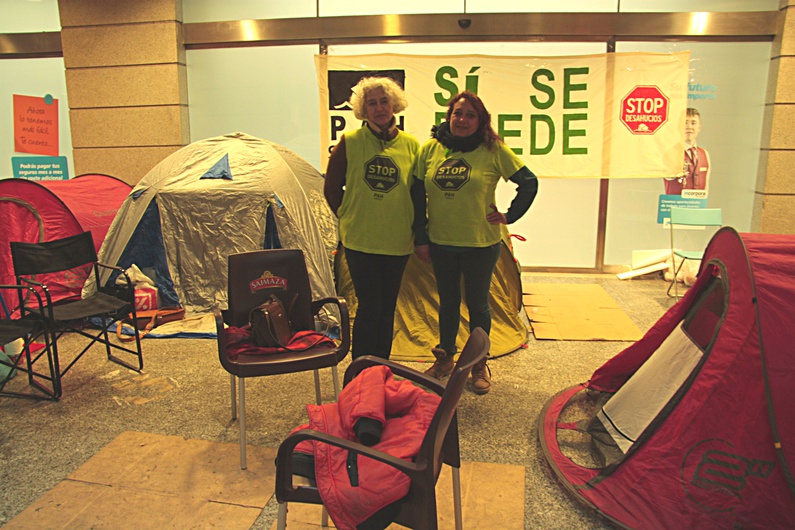 A HUGE THANK YOU TO CAFEBABEL SEVILLA - ELENA URBINA SORIANO AND CLARA FAJARDO AS WELL AS TO PABLO GONZALEZ JIMENEZ.
A HUGE THANK YOU TO CAFEBABEL SEVILLA - ELENA URBINA SORIANO AND CLARA FAJARDO AS WELL AS TO PABLO GONZALEZ JIMENEZ.
THIS ARTICLE IS PART OF A SPECIAL SERIES DEdicated TO seville. IT'S PART OF "EUTOPIA: TIME TO VOTE", A PROJECT RUN BY CAFÉBABEL IN PARTNERSHIP WITH THE HIPPOCRÈNE FOUNDATION, THE EUROPEAN COMMISSION, THE MINISTRY OF FOREIGN AFFAIRS AND THE EVENS FOUNDATION.





